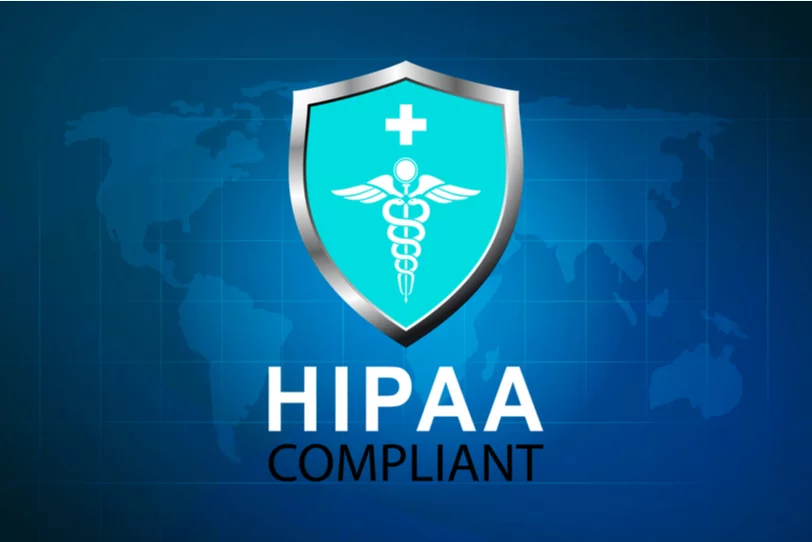
HIPPA regulates the disclosure and use of PHI or protected health information. Healthcare organizations have to make sure that their patients’ data is secured. According to HIPPA compliance, if you are dealing with confidential information then you have to follow various security compliances. This will ensure that the patient’s data is protected from data breaches. Most of the companies still don’t understand HIPPA compliance and audits. According to a report by HHS, more than 70% of healthcare organizations are not following HIPPA compliance.
Most of the healthcare institutes and organizations are vulnerable to data breaches. Various cloud providers like Amazon Web Services or AWS are providing HIPAA-compliant solutions to their uses. These services will take responsibility for some of the compliance measures. But, you have to still deal with various compliance measures. It is important for a healthcare business to understand HIPPA compliance. You need to make sure that your client data is protected from data breaches. This will also help you in avoiding potential fines. In this article, we are going to share some tips with you. You can use these tips for improving HIPPA compliance.
-
Focus on procedures and policies
Most healthcare providers have completed some part of their procedures and policies. They have updated important things like privacy policies. But, still, you have to focus on other policies also.
Your procedures and policies must contain all the important information. If you have not included important information like about your system firewalls or authorized disclosures, then your document is useless. It will not help your employees during a data breach.
If your business is hit by a data breach, then HHS will first check your procedures and policies. Thus, it is important to have sufficient procedures and policies.
You should try to find a gap in your policies. Does your employee know about all the policies and procedures? If your employees don’t know about your documentation, then it is time to train your employees. You should also update your policies at a regular interval of time. Your business is going to change with time. Thus, you must also change your organization’s roadmap. Your policies will ensure proper compliance and security of your data.
-
Perform risk assessment
According to HSS, healthcare businesses should regularly conduct a risk assessment. It will help you in identifying various vulnerabilities and threats in your business. You will understand the security position of your organization.
Risk assessment should be done at least one time in 6 months. This will ensure that your current operational practices are following HIPPA compliance. You should evaluate the disclosure, use, and security of your PHI against the HIPPA’s compliance.
-
Incident response plan
Data breaches are becoming more common with time. Hackers are looking for new vulnerabilities for getting into organizations’ networks. Thus, you have to be always ready for a data breach. It is difficult to stop a data breach completely. But, if you have good security then the severity of data breach will definitely decrease. You should be also ready for the aftermath of a data breach.
You should start by first documenting your response plan. This step should be done before you have been hit by a data breach. The main aim of your plan must be to minimize the impact of the data breach. If you have already documented a response plan, then it will help you in reducing your fines. You should identify all the potential vulnerabilities and risks. If you have performed risk assessment, then you must already know about the potential risks.
Most of the health organizations are using third-party services for responding to the data breach. If you are also using a third-party provider, then they must be documented in your response plan. You should also make a breach response team. Everyone in the team should understand their role and responsibility. Make sure that your team has a team leader, legal representative, HR and other stakeholders. It is also important to give proper training to your employees.
-
Train your employees
Most organizations don’t train their employees. But, if you have given proper training to your employees, then they can be your greatest asset.
You should do regular security meetings in your company. Make sure to review your Breach notification and security rules. Also, you must include your entire staff.
Your employees must know about basic security terms social engineering and phishing. They should also know about social media compliance and acceptable use of PHI. Try to include food or games in your training session. This will ensure that your employees will retain more information.
-
Establish the best security practices
Attackers are mostly using some known vulnerabilities for breaking into businesses network. You can hire a security team that will make sure that your data is protected. There are various vulnerability scanning tools available that can scan your system for vulnerability. This will ensure that your system is protected from known vulnerabilities.
It is also important to promote the security culture in your organization. You should try to maintain good security culture. Healthcare organizations generally seek outside assistance for security. But, they fail to protect even those third-party systems. You should try to maintain good security culture in your organization. Make sure that your employees know about basic security practices.
Conclusion
You can use the above tips for making sure that your patient data is safe. It is your moral duty to protect your patient’s sensitive data from hackers. You should do a proper risk assessment of your organization. This will help you in finding the potential vulnerabilities in your system. Thus, your security team can help you in fixing these vulnerabilities. If you want more tips regarding HIPPA compliance, then you can contact Bleuwire.
Contact us today to learn about Bleuwire™ services and solutions in how we can help your business.





